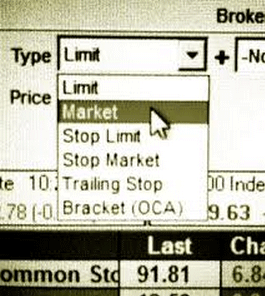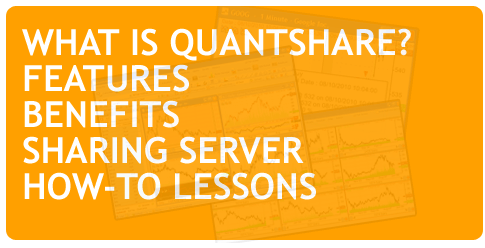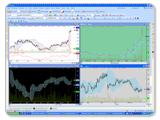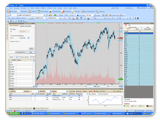 When you’re starting out to trade stocks, one of the first few things you learn is the different trading executions. We’re given a choice on whether we execute a buy or sell order; with one order to enter into a trade and another to close our open position. On top of that, we’re given the option of whether we wish to execute our trade using limit or market orders. Limit and Market Orders Defined While this is very elementary stuff, it really helps to understand the basics on these two widely used trading orders. Market orders are orders to buy or sell at the market’s current best price. This will always get filled; but not necessarily at the price that the trader wanted. For example, you want to close your position on Intel (INTC) at 21.46 which happens to be the current price for the stock. However, by the time you executed your order, the price may have changed to 21.45 resulting to a penny variance. Limit orders, on the other hand, are orders to buy or sell at a specific price point. The order will only be executed once the stock reached the price that you specified. For example, you wish to sell INTC at 21.46; the order to sell will only get filled once the price reached 21.46. Limit orders typically cost more that market orders; however, most traders find using limit orders more favorable for their trading plan. Here’s why limit orders should be the default in any trade executions: You Trade According to Plan We know how it is in trading; a vital company update, earnings report, or news flash could cause stock’s prices to spiral out of control. Instances such as these will send traders on an emotional rollercoaster as well. And we know that trades driven by greed, hype, or fear will almost always turn out for the worst. Traders who will execute at market orders will usually get the worst price possible. However, when you keep your cool, execute a limit order; you’ll usually get the best price possible at a profit or a small loss. And that is what usually separates a successful trader from the rest of the pack. You Stay in Control of Your Trades Traders who always use market orders at the most crucial moments are like drivers who let go of the steering wheel in accident prone areas. Some would probably argue at the poor analogy but trading is similar to driving at some aspects. It all boils down to control. There are so many variables that are way out of control of the trader – that’s a fact. We can’t control the price movement; we can’t control other traders’ sentiments; and the list goes on for things we have no control over. However, for all the uncontrollable variables in trading, there is a host of variables that you do have control over – and you should never relinquish your control over these variables for this gives you the edge over other losing traders. Some traders may argue that they usually execute market orders on highly traded stocks where the spread is usually a penny or two and doesn’t make much of the difference in their P&L. That’s good and well; however, there’s nothing definite about stocks and its price movements. However improbable, there might be instances when something could trigger the stock’s price to move erratically at the very moment you executed your market order. And you could find yourself losing several hundreds to thousands with that lone poor execution. You’re Never at the Mercy of the Market A trader’s opinion is not worth much in the market; the market will move in whichever direction regardless of what you think. Traders who remember this will almost always come up on top because they’re never at the mercy of the market’s whims with their misplaced opinions. By placing a limit order, you ensure that you keep your eyes on the bottom line while fully acknowledging the market’s movement and reacting to it to get the best possible value out of that trade. Limit orders are the most used by successful traders – and justifiably so. After all, stock trading is full of stories of traders who’ve blown their accounts with just a couple of poor executions. Successful traders have long known that to stay on top of the game, you have to be ahead of the others. When most traders are on an emotion-driven trading suicide, savvy traders would keep their cool and cash in on other people’s fear and greed. comments powered by Disqus |

|
|
|
|







